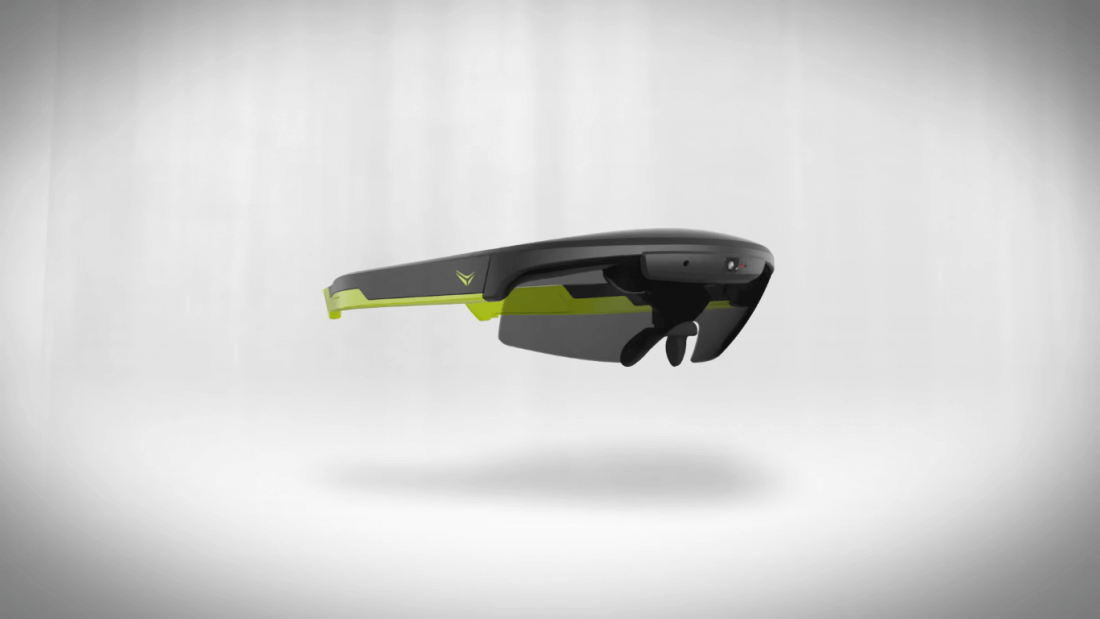Israeli company Elbit Systems developed a set of goggles that allows cyclists to track all of their metrics without taking their eyes off the road. Elbit is a company that specializes in making drones and other military technology, but its subsidiary, Everysight is in charge of this product aimed at the civilian cycling community.
The Raptor smartglasses, which look a lot like the stylish shades that are already prevalent in cycling, were developed using technology similar to that used by fighter pilots and pack a ton of functionality. As mentioned, the glasses can track metrics such as your heart rate, calories burned, time and distance measurements, cornering angle, and of course, speed.
However, the glasses are not limited to just tracking metrics. According to Bloomberg, the Raptor can provide a map overlay and can even receive notifications, text messages, and calls from your smartphone.
Currently, only about 10 percent of Elbit Systems revenue comes from the commercial market, but it is trying to grow its civilian divisions. Its primary strategy for retail growth is to adapt its military applications for commercial use. Wearables are one area that it is interested in focusing on, but autonomous vehicles are also of investment of the Israeli conglomerate.
Google already tried and failed at eye-wearables with its doomed Google Glass. Despite that failure, Everysight is confident that its Raptor smart glasses will be successful. A spokesperson for the company told Bloomberg that part of the reason that they feel they will do better than Google Glass is due to the company's decades of experience and research in "vision systems and augmented reality."
The other part of the equation for success is that where Glass tried to be an all in one, providing things that people just did not want or need in eyewear, Everysight is focused on a highly functional product for a very specific market. While the glasses will provide some functionality beyond a cyclists concerns, those are mostly secondary to the primary focus.
Elbit Systems tried venturing into the consumer market in the past with mixed results. Its first foray was in manufacturing televisions in 1992, but it failed miserably and ceased production after only two years. After that, the company decided to only focus on developing commercial products that were based on technology it had already developed. So in 2008, it produced "an intrabody navigation system," called MediGuide, which St. Jude Medical purchased for $283 million.

Regardless of how the Raptor smartglasses do, Elbit is not afraid of failure.
"This is not the core activity of the company," Elbit Systems CEO Bezhalel Machlis said. "Everysight could be divested at the appropriate time."
There is no word when the glasses will be available for purchase. However, they are currently in the testing phase so it should not be too long. If you are interested in joining the "Test Pilot Program" or would like to receive progress updates, sign up at Everysight's website.
